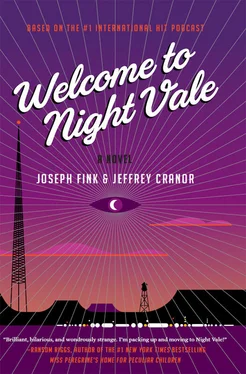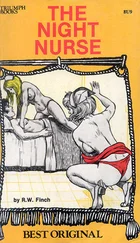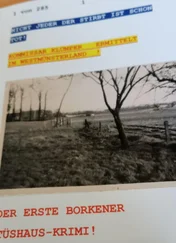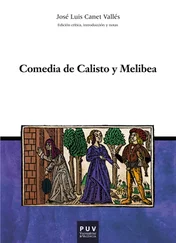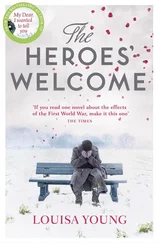Sometimes she was teased, called terrible names by other children. Sometimes, those children were not the same race as one of her parents. Conversely, those same children were often the same race as her other parent.
As Diane became a teenager, she continued to hear not only about her race but also about her body.
She was a girl, not yet a woman. She was fifteen years old.
Imagine a fifteen-year-old girl of mixed-race parents.
That’s pretty good. That’s very close, she might say to anyone who described what she looked like. Diane didn’t know what she looked like. She never cared to know. Many people would tell her anyway.
When her body won the race to womanhood against her person, Diane began to hear that she was tall, short, fat, skinny, ugly, sexy, smiled too much, smiled too little, had bad hair, had beautiful hair, had something in her teeth, dressed nice, dressed cheap, had duck feet, had elegant feet. She was too dark. She was too pale.
She heard a lot of different descriptions of her, and she took them all as truth.
You must never need to get any sun, Diane, a person might say as they playfully (and jealously) batted their sleeved arm at her. You don’t look like who you are, Diane, a different person might say as they playfully (and scoldingly) batted their unsleeved arm at her.
Teasing about race came less and less. Or rather, it disguised itself as simple assessment. You sound like a regular person on the phone, someone might say to her on the phone.
She also heard about the non-marriage of her parents. You’re technically a bastard, right? people sometimes asked when they heard her parents were unmarried.
Were you an accident? other people (sometimes the same people) might ask. Do they not love each other? other people might inquire, earnestly. Well, they’ve got an easy escape if things ever go wrong, still others might joke, unearnestly. Are they swingers? some might joke and others might ask sincerely.
But most common was the assumption that she would never fall in love. You’ll probably never meet someone, some assumed, because your parents didn’t teach you the importance of marriage.
She did find true love. His name was Troy. He was seventeen. She was an older seventeen.
Imagine a teenager named Troy.
That’s not bad. He’s a bit less athletic, but it doesn’t matter. Troy looked like what he thought he looked like. Troy always looked exactly how he thought he looked. He never loved Diane until they met. Then he always loved her. Until later, when he never loved her.
“I will always love you,” he sometimes said.
Later he didn’t say this at all. He wasn’t even there to say it.
They were always together and always in love for the eight months they first knew each other, working summer jobs at the White Sands Ice Cream Shoppe. Then Josh, not yet named Josh, began to form. He began first as scattered cells. Those cells joined and began to multiply into billions and billions of cells until they were shaped like a single, giant cell.
Those cells added more cells from Diane’s cells, and those cells began to make eyes and feet and kidneys and tongues and wings and gills, growing and expanding into a Josh-like shape. People pointed out to Diane how different she looked on the outside. She did not feel she looked any different.
Then one day Josh came out of Diane.
She was a girl, finally a woman. She was eighteen years old.
Imagine an eighteen-year-old mother.
Imagine a seventeen-year-old father.
Troy couldn’t. Troy couldn’t see himself anymore. He looked at Josh, whom he named after his uncle, a retired Army Ranger he vaguely thought of as “cool,” and Troy saw a mirror out of sync. A face stared back, making different gestures, different motions than Troy made. It was his face, but it did not look like him, act like him.
Troy had never experienced discord. Or he had never known he had experienced discord until that moment.
Troy moved out of Night Vale when Josh was one year old.
A month later, Troy sent Diane a letter. It said something about a military family. It said something about being children. It said something about mistakes. It said something about remembering each other. It said something about never forgetting her face.
She doesn’t remember if he said he would never forget her face or if she should never forget her own face. Either way, neither happened.
Some people told her they knew she would never keep a man. Some told her that good parents would have insisted Troy marry her. Some told her she dressed inappropriately. Some told her she was too tall. Most told her she would never get married now.
This was fine with Diane. This is still fine with Diane.
We meant to say you’ll never meet anyone now, let alone get married, most would clarify.
Josh was always curious about who his father was. He understood, based on what his friends had told him, that many children had two parents, and there were periods where it was clear he felt one short. Often he would ask questions. Sometimes those questions were out loud.
Diane sometimes hears that Troy is an actuary. Sometimes she hears Troy is a florist. Sometimes she hears Troy is a cop. A toll collector. A professor. A musician. A stand-up comedian. Once she heard a terrible rumor he became a librarian, but she could not imagine Troy becoming the darkest of evil beasts, no matter what he had done to her. Is it even possible for a human to become a librarian? Diane wondered.
And now she and Josh in the movie theater, and Troy, unnoticed by Josh.
The dark strip of floor lighting turned back on. Troy, still not looking her way, gave a big thumbs-up to somebody out of sight, just around a dark corner. Troy’s teeth shone in shadow. He did not look at Diane. Troy exited the theater slowly, still grinning, thumb still extended.
She looked back at Josh, her arm reflexively tightening around him. He squirmed and glanced at her.
“I’m sorry,” she said, and removed her arm.
“No, it’s fine,” he said, looking down at his half-eaten Twizzler.
“Really?” She put her arm back around him.
They waited quietly for the movie to start.
Later, Diane would return to the theater on her own.
Jackie started her car in the direction of the library, but soon it strayed. Or she strayed it. Whatever the verb is to cause to stray. Corrupted. She corrupted her car toward her mother’s house.
Her mother had called, and being a good daughter was as convenient an excuse as any. Anything to avoid the library.
She turned onto Desert Elm Drive, a name which was evocative of nothing real. She drove past the Antiques Mall. The antiques in the window were especially cute, wrestling with each other and playfully snapping at each other’s tails. But she could never seem to justify the money for an antique, and besides she was rarely home, so how would she care for one?
Her mother lived in the neighborhood of Sand Pit, which was between the developments of Palm Frond Majesty and the Weeping Miner. It was a neighborhood of single-family homes, with small front yards, mostly kept gravel by water-conscious residents, and backyards that rose steeply into hills unsuitable for planting without extensive and time-consuming terracing.
Her mother’s house was like any house that was pink with green highlights, or any house with a manually opening wooden garage door fallen half away to splinters, and any house with a rosemary bush slowly encroaching its way into every other plant in the yard, and a front gate that sagged into rusted hinges, and a thick green lawn that frustrated her water-conscious neighbors. Her house could easily be mistaken for any other house that happened to be identical to it.
Читать дальше
